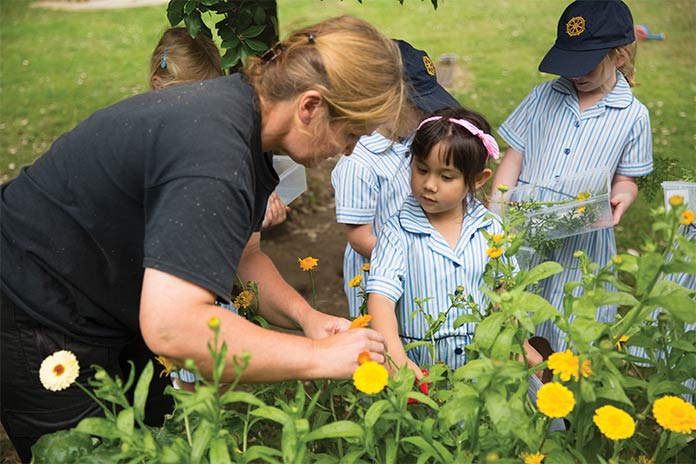Naomi Bartholomew, Headmistress of St Catherine’s Preparatory School on providing green spaces in schools
We already know of the strong environmental impact of providing green spaces in our prep and primary schools. Green spaces filter pollutants and dust, provide shade and reduce soil erosion and provide important habitats for wildlife. Little wonder so many schools, if they are fortunate to have them, take advantage of the outdoor learning opportunities green spaces provide.
Encouraging young children to observe very closely and to learn first-hand about life cycles and the need to care for habitats enable powerful early eco-lessons. Many schools will have bug and bee hotels and projects and activities about mini-beasts, butterflies and birds. Children love foraging and exploring, building on their natural curiosity, enabling children to learn through doing, making and experiencing which is such a key element in a successful primary education.
Recently, I spoke in school assembly about the need to protect bumblebees and before we knew it we were discussing climate change, palm oil and plastics in our oceans. We started with our own cottage garden but within minutes the girls were thinking globally. Building children’s awareness of all our actions and the impact they have on the world is more important than ever.

“We are raising the global citizens of the future; our children must value the natural world”
We are educating and raising the global citizens of the future and children’s understanding of our inter-dependence with each other and with the natural world is essential. Whether that be via schools participating in Green Flag status, hosting visiting farms, exploring the local environment or one of our outstanding resources (the Natural History Museum, the Eden Project or just connecting with local National Park rangers or the National Trust) there are an abundance of valuable environmental tools with which to teach young children. Creating positions of responsibility in schools, for example, as Eco Warriors and or class recycling monitors can make an immediate impact. At St Catherine’s we have invested heavily in our green spaces and outdoor learning opportunities alongside our science laboratories because we really believe very strongly that learning should take place both in and outside of the classroom.
Recent research from psychologist Professor Eirini Flouri, based at University College London, concludes that children tend to fare better academically if they have ample access to green spaces. She finds that children with daily access to green spaces score higher in spatial working memory tests and are able to retain visual information long enough to process it and make use of it to solve problems. Green space proved to be important regardless of wealth and had a particular impact on children’s mathematical performance. Children are living in a fast-paced world, both real and virtual, with increasing amounts of screen-time interrupting their interactions with nature. Green spaces reduce stress and sadness and lift our mood, making us all feel better. Government research into the public health benefits of green spaces describe them as ‘restorative, uplifting and healing for both physical and mental health.’ I can think of no better reason to ensure that we protect and continue to include green space in every primary school in the country.
You may also like...






























